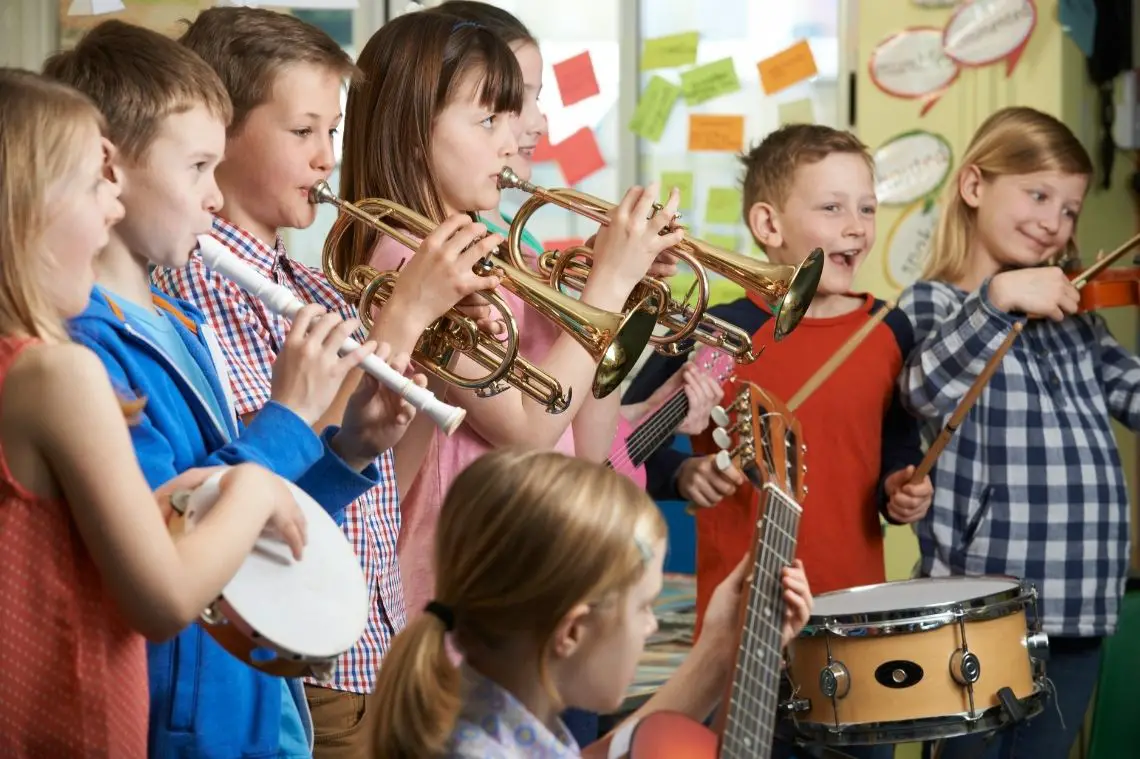In the 1993 cult classic film Sister Act II, the character Florence Watson tells her musically gifted daughter, “Singing does not put food on the table. Singing does not pay the bills.” This line is almost comical, given her daughter is played by Grammy Award-winning musician Lauryn Hill.
Even so, it—unfortunately—reflects a mindset toward music education that still exists today. It’s the idea that music is fine to teach kids but not all that important in the long run. But this thought process ignores many of the unexpected benefits of music education for children.
Academic Skills
There is a longstanding tradition of “The Mozart Effect” in our discussion of music. It’s the idea that listening to classical music will temporarily boost your score on an IQ exam. That’s all well and good, but it ignores the impact of music—all genres of music—on other aspects of kid’s academics, such as:
- Awareness of sound that boosts reading scores
- Breaking down and counting notes and rhythms for better math scores
- Time management and study skills from practicing
- Improved memory and concentration
This says nothing of increased social skills and the ability to express oneself that can also help kids thrive in a classroom setting.
Improved Immune System
This unexpected benefit of music education may raise eyebrows at first but hear us out. When we’re stressed, our bodies produce a hormone called cortisol that, among other things, suppresses our immune system functions. In other words, the more stressed we are, the more likely we are to get sick.
Music helps reduce stress and trigger the production of endorphins in the body. Endorphins can boost your mood and help increase immune functions as well.
Cultural Education
There is an untold number of cultures on the planet, each with unique beliefs, values, and traditions. But there isn’t a single culture without music. Each group’s musical styles and songs encapsulate significant cultural traditions that help kids become aware of and appreciate other cultures.
Beyond that, music is the thing that ties us together as human beings. As kids see and appreciate the differences between different groups, they’ll hopefully also see the similarities, increasing empathy toward others.
Grit and Resilience
In our world, we tend to have a talent and performance-based mindset, especially with music. It’s the idea that some people are good at music and some are not. But those who have learned and practiced music throughout their life will tell you learning music is a process. You have to try, fail, and grow to become good.
Learning a growth mindset teaches us grit and resilience. It’s the ability to face setbacks and difficult scenarios and be willing to persevere and grow throughout them. It helps us adapt to change, increases our hopefulness, and makes us more likely to succeed. If that’s not a reason to encourage a child’s interest in music, we don’t know what is.








Start the discussion at talk.hearthemusicplay.com